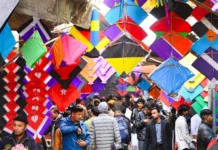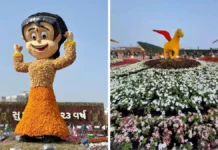 NEW YORK: When comedian Rajiv Satyal and fellow comedian Azhar Usman were creating a touring show called “Make Chai Not War,” they never imagined that one day they would be the topic of discussion on Capitol Hill. But that is just what happened, albeit briefly, during the Senate Foreign Relations Committee hearing into the terrorist attack on a diplomatic mission in Libya last September.
NEW YORK: When comedian Rajiv Satyal and fellow comedian Azhar Usman were creating a touring show called “Make Chai Not War,” they never imagined that one day they would be the topic of discussion on Capitol Hill. But that is just what happened, albeit briefly, during the Senate Foreign Relations Committee hearing into the terrorist attack on a diplomatic mission in Libya last September.
The show was mentioned during an exchange between Sen. Rand Paul (R-KY) and Secretary of State Hillary Rodham Clinton. Paul was criticizing Clinton for, in his opinion, not paying enough attention to important cable messages from U.S. diplomats overseas regarding important matters.
“We can understand that you’re not reading every cable,” Paul said. “I could understand that maybe you’re not aware of the cable from the ambassador in Vienna that asked for a hundred thousand dollars for an electrical charging station. I can understand that maybe you’re not aware that your department spent a hundred thousand dollars on three comedians who went to India on a promotional tour called “Make Chai Not War.”
In his remarks, Paul was referring to a tour sponsored last year by the State Department, in which Satyal, Usman and another comedian, Hari Kondabolu, visited seven cities in India, performing “Make Chai Not War.” Satyal, who is a Hindu, and Usman, who is Muslim, created the show in 2007 with a goal of bringing people of different religious and ethnic backgrounds together, through humor.
“Make Chair Not War” first caught the attention of the State Department when it was performed at a hotel in Arlington, Virginia in 2008, and received a glowing review in a government newsletter.
Last year’s “Make Chai Not War” tour of India received international news coverage, including articles in The Washington Times, The Wall Street Journal and a feature on NPR’s “All Things Considered.” Satyal said that he is glad the show is again receiving attention in Washington, but he regrets the context.
“It may seem frivolous to spend tax dollars sending comedians to India, but our show is about spreading goodwill,” Satyal said. “Most of the money covered production and travel expenses, and I believe the audiences who came to see us in India went away with a positive opinion about the United States.”
India Post News Service






